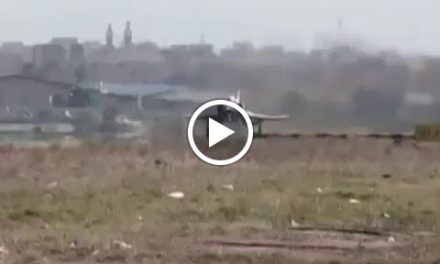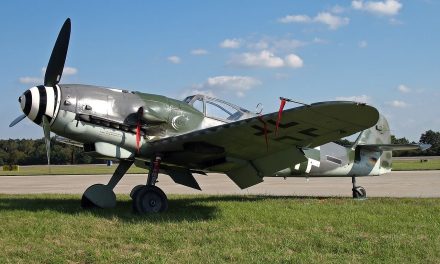I recently came across this article from the dailymail.com.uk and put together this post. The article is a little dated from 2015, but contains an interesting interview with R.A.F. Ace Tom Neil. Fascinating and revelatory reading!
Originally shared by Pete Panozzo
By ROBERT HARDMAN FOR THE DAILY MAIL
PUBLISHED: June 23, 2015 UPDATED June 24, 2015
German pilots? Our trigger-happy Dad’s Army were just as big a threat! 75 years on, an enthralling new perspective on the Battle of Britain by one of the last surviving heroes
Even now, on the eve of his 95th birthday, it is not hard to see why Tom Neil became one of the poster boys for that gallant band who saw Britain through her darkest hour.
Tall, ramrod-straight with a fine head of hair and a glint in his blue eyes, he can recall that desperate summer of 1940 as if it were yesterday — and he still tells it just how it was.
Cheerfully chewing over the serious short- comings of the Spitfire or the trigger-happy Dad’s Army patrols who were as much of a menace to a British pilot as to a German, Tom Neil is excellent company, impeccably polite — and endearingly frank.
But when you are the last surviving RAF ace (more than five enemy kills) of the Battle of Britain — with 140 missions, 14 enemy planes down, two Distinguished Flying Crosses and the Air Force Cross to your name — you can say what you like.
So he doesn’t hold back, whether it’s on the subject of wartime legends such as Douglas Bader — ‘small man, big pipe; a gutsy chap but “me first”; by the time he’d got his “Big Wing” formation [in which dozens of aircraft swooped down in a cluster] in the air, the rest of us were on the way home’.
Or the famous movie, Battle Of Britain — ‘absolute hokum’. This Saturday, Mr Neil will be one of the star attractions at the Daily Mail Chalke Valley History Festival in Wiltshire where he will be in conversation with historian and BBC presenter James Holland.
Like so many of his generation, Mr Neil kept a lid on his wartime experiences until long after it was all over when he finally started putting them down on paper. Having written several books on various aspects of his career, he is about to publish Scramble!
It is a fresh account of the four-year period during which he went from life as a bored trainee bank clerk from Bootle to the thick of the action in the Battle of Britain and the Siege of Malta (then, the most heavily bombed place on Earth).
“The Spitfire wasn’t all it was cracked up to be”
All these years later, though, he says that he can see history repeating itself. ‘Two things a country should worry about is money and arms,’ he explains over lunch at his Norfolk home. ‘These days, we don’t seem to have much of either.
‘And if you’re not ready to defend yourself when the time comes, you always spend a lot of time and a lot of lives trying to catch up.’
That, he says, was Britain’s problem in 1940 after France had fallen and we stood alone against Nazi Germany.
‘We had the wrong aircraft. The Hurricane Mark 1 was pretty useless and the Spitfire wasn’t all it was cracked up to be, either.
‘By the end of the war, they’d produced 24 different Spitfires and some of them were first-rate, but for the first few years we had a lot of problems.’
What about all those stories of Luftwaffe pilots complaining about the invincibility of the Spitfire? ‘I’m afraid the Messerschmitt 109 was the better plane in many ways,’ says Mr Neil, happily committing RAF heresy.
‘The Spitfire could fire continuously for just 14.7 seconds on each run and then you were out of ammunition and had to go home. The Me109 could last 55 seconds.
‘It was smaller, with a bigger engine and had better fuel injection. The Hurricane was slower and had exposed fuel tanks. One hit and they could turn the cockpit into a barbecue in three seconds.’
He points out that American aviator Charles Lindbergh flew all three shortly before the war and rated the Messerschmitt as the best.
So how come we won the Battle of Britain? ‘Because we never, ever, for one moment had the slightest doubt that we would win. Defeat just simply didn’t occur to us,’ he says.
‘And we had this brilliant replacement system. Churchill and Beaverbrook [Lord Beaverbrook, the Minister for Aircraft Production] had got all these factories going.
‘I remember we lost seven planes in a matter of minutes and the squadron was back to full strength with aircraft the next lunchtime. If we crash-landed, we could repair some of our planes. And if we baled out and survived, we could get back up again the same day.
‘But if a German crashed or baled out over Britain, that was it. They wouldn’t get another chance. And in the end, they decided that they didn’t like fighting over Britain.’
Mr Neil baled out just once in the course of battle — after being pranged by his own station commander above Kent.
He woke up on the ground to see four pairs of shoes, two male and two female, and voices debating whether to ‘string him up’ because they thought he was German.
Fortunately, wiser counsel intervened. But he tells me how his chum James ‘Nick’ Nicolson was hit over Southampton and was parachuting down, badly burned — ‘He talked about a terrible smell of roast pork’ — when a Home Guard sergeant shot him in the backside.
On the same mission, Mr Neil’s friend, Melvin Green, was parachuting to safety when a Home Guard bullet killed him.
‘You have to remember that the public were absolutely terrified of invasion from German paratroopers at any minute and assumed that any parachute was enemy,’ says Mr Neil, smiling at the memory of his friend ‘Nick’ Nicolson.
‘After this sergeant shot him, a fight broke out among the crowd on the ground and a butcher’s boy broke the sergeant’s jaw,’ says Mr Neil.
‘So Nick ended up being taken to hospital in the same ambulance as the man who shot him.’
Neither was to know that Nicolson’s heroism that day — doggedly sticking with his blazing Hurricane long enough to shoot down the Me109 that had attacked his unit — would earn him the only Victoria Cross of the Battle of Britain.
He went on to win a DFC in Burma before being killed over the Bay of Bengal.
‘He was the only Fighter Command pilot to win the VC during the war,’ says Mr Neil.
‘The thing about a VC is the specific action has to be witnessed by an officer and that doesn’t happen much when you’re in a fighter.’ Does that annoy him?
‘No — but I think my friend Percy Burton should have got one for ramming his plane into the enemy. He was never going to survive that. But he just got mentioned in dispatches.’
Mr Neil was awarded the Distinguished Flying Cross after five ‘kills’ in September 1940 —only to win another the following month. His heroics at the height of the battle led to an interview with the BBC and a visit from the society photographer of the era.
Cecil Beaton had been commissioned to portray life on the front line with the airmen whom Winston Churchill would so memorably christen ‘The Few’.
Mr Neil and his comrades were the celebrities of their day, not that they felt like it. Nor would they have dreamed of behaving like modern celebrities, either. ‘We just happened to be there when Beaton turned up and so we did what we were told.’
One picture shows a weary — and extremely youthful — Tom Neil fast asleep between missions.
‘I have to admit I was feigning sleep on that occasion,’ he chuckles.
By the end of 1940, he had far exceeded the life expectancy of a young fighter pilot and experienced more action than most of his contemporaries would ever see. He would go on to have umpteen close shaves all over Europe.
After surviving the Siege of Malta, he was attached to the U.S. Air Force in time for D-Day and is thought to have been the first fighter pilot to land on French soil after the invasion.
As far as he was concerned, however, his greatest achievement was meeting and marrying WAAF officer Eileen Hampton, with whom he had three sons, two of whom went on to become pilots. Eileen died last year.
‘She was the love of my life and I miss her very much,’ he says, his impish smile dimming for a moment.
As the 75th anniversary of the Battle of Britain approaches this summer, with formal commemorations in September, there are just 25 of ‘The Few’ still with us.
To hear their stories told with such good humour and panache is a privilege we should cherish while we can.
Not that Mr Neil has any retirement plans just yet. Once his book is out, he is planning more talks.
‘I made a promise to my wife that I would keep on going and so I shall,’ he says brightly.
‘So I’m off to America to give some lectures to the Smithsonian Institute.’
SCRAMBLE! by Tom Neil will be published by Amberley on September 28.
The Daily Mail Chalke Valley History Festival, in Ebbesbourne Wake, near Salisbury, Wiltshire, runs until Sunday. To buy tickets, go to cvhf.org.uk or phone 01722 781133.




Recent Comments